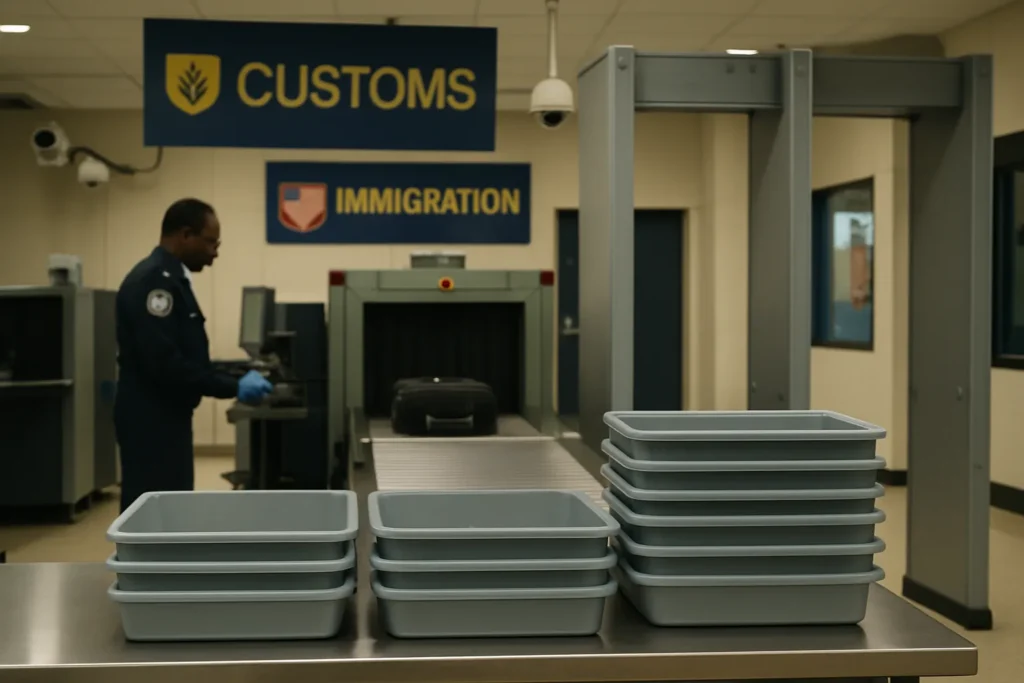The Encounter That Sparked a Civil Liberties Debate
Hasan Piker, a household name on Twitch for millions and an outspoken leftist commentator, expected the usual glance and stamp when he re-entered the U.S. through Chicago O’Hare International Airport. Enrolled in Global Entry—a program created to speed travelers through customs—Piker instead found himself escorted to a private room for nearly two hours of intense questioning. Why did a popular American, known for his progressive takes, find himself grilled about his politics at the border?
According to Piker, the questioning wasn’t just about routine security concerns. Agents steered the conversation quickly toward his political beliefs, his views on Donald Trump, and his commentary on ongoing Middle East conflicts. They pressed him on whether he considered Hamas a terrorist organization or a resistance group and even asked if he supported President Trump. Piker described the environment as hostile but noted one agent was “very sympathetic” to his perspectives on the war in Gaza. The experience, he admitted, was a strange mix: intimidating and unsettling, yet not entirely adversarial.
Yet beneath the surface of this unusual incident lies a troubling national trend. Civil liberties groups, alarmed by reports like Piker’s, warn that scrutiny at the border is increasingly tied to political or social media activity. Ari Cohn, an advocate with the Foundation for Individual Rights and Expression, summed up the concern: “No U.S. citizen should be detained by law enforcement, at the border or anywhere, because of their protected speech.”
Borders, Speech, and America’s Growing ‘Environment of Fear’
What happened to Hasan Piker is far from an isolated event. Over the past few years, especially during and after the Trump administration, travelers arriving in the United States have reported being interrogated about social media posts—sometimes facing detailed questions about harmless tweets, or perceived affiliations based on their digital footprints. Incidents like these create what Piker himself described as an “environment of fear,” particularly for those with dissenting or minority views.
History offers a sobering reminder of where policies based on suspicion of political views can lead. During the McCarthy era, countless Americans saw their livelihoods or freedom threatened if they were suspected of left-wing sympathies, sometimes on the flimsiest evidence. Today, some worry that digital surveillance and information sharing between agencies has turbocharged an old problem with high-tech tools. The Trump administration drew criticism for initiatives using artificial intelligence to monitor public and private communications—allegedly to spot “unacceptable” views or support for causes critical of U.S. allies like Israel.
According to Harvard law professor Carol Steiker, “History shows that American democracy is at its most fragile when government treats dissent as a security threat.” Even though Piker is a U.S. citizen, many of his fans and fellow travelers are not. For them, being singled out at the border can mean denial of entry, visa revocation, or worse. “The message is clear: Criticize powerful institutions and you may pay the price.”
“No U.S. citizen should be detained by law enforcement, at the border or anywhere, because of their protected speech.” — Ari Cohn, Foundation for Individual Rights and Expression
Beyond that, Piker’s social media reach—2.8 million Twitch followers, millions more across TikTok and YouTube—underscores how new media disrupts traditional boundaries. The power once concentrated in newspapers and cable news is now wielded by digital creators. When voices like Piker’s are put under a microscope, the ripple effect is felt across vast communities who rely on such platforms for alternative perspectives and candid debate.
Denials, Doubt, and the Real Stakes for Democracy
The Department of Homeland Security is quick to insist that its actions were “routine” and in no way related to Piker’s political views. Yet skepticism abounds. Given the sheer volume of digital information available on U.S. travelers, and the growing tendency for border agencies to review social media posts when making decisions, these assurances ring hollow for civil liberties advocates. As journalist Spencer Ackerman has reported for The Guardian, journalists, academics, and artists critical of the U.S.—or simply outspoken on human rights abuses abroad—have repeatedly been stopped for secondary inspection, often in the absence of any criminal suspicion.
Piker’s own description of the agents as knowing exactly who he was before the questioning even began raises urgent questions. Are border checks being used to send messages to government critics? Is this chilling effect intentional? For those who believe in the First Amendment, the risk goes beyond individual discomfort. The consequences for democratic society when dissent is policed—even subtly—are profound.
Expert analysis suggests the danger of normalizing surveillance and interrogation of political opponents. Georgetown professor Alvaro Bedoya, a leading authority on privacy rights, puts it bluntly: “The more we tolerate invasions of privacy for some groups, the easier it is to justify for all.” The U.S. should not repeat the mistakes of the past, where stifling dissent became all too easy in the name of security. Vigilance now is necessary to protect not just high-profile streamers, but the next generation of activists, journalists, and ordinary citizens whose voices demand to be heard.
If we shrug at these warning signs, it’s not just celebrity pundits who will suffer. The real casualty will be democracy’s bedrock: the ability to criticize power without fear. In the end, what happened at O’Hare is a test of the American promise—a promise that all voices, not just those palatable to power, have the right to cross borders and air their convictions without intimidation.

